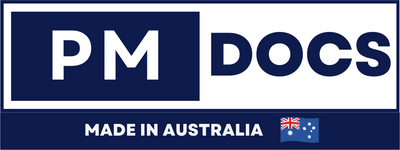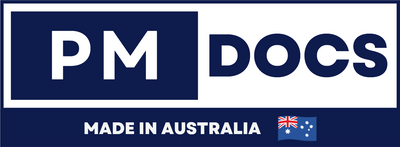ISO 22000 Certification In Australia: Food Safety Compliance Explained
Navigating Food Safety: Your Guide To ISO 22000 Certification in Australia
Australia is renowned globally for its high-quality food produce and stringent safety standards. From paddock to plate, consumers and international markets expect nothing less than excellence. For businesses operating within this vital sector, ensuring robust food safety management isn't just a regulatory requirement; it's a foundation of trust, a mark of quality, and a gateway to market success.

Enter ISO 22000: Food Safety Management Systems. This internationally recognised standard provides a comprehensive framework for organisations throughout the food chain to manage food safety hazards. For Australian businesses, achieving ISO 22000 certification signifies a commitment to the highest levels of food safety compliance, offering a competitive edge in a demanding market.
This post will delve into what ISO 22000 entails, why it’s crucial for Australian food businesses, the certification process, and how it aligns with the nation's robust food safety landscape.
What Is ISO 22000?
ISO 22000 is an international standard that defines the requirements for a food safety management system (FSMS). It outlines a systematic approach to managing food safety hazards from the point of origin (e.g., farm) through to consumption, encompassing every step in the food chain.
Developed by the International Organization for Standardization (ISO), it integrates the principles of Hazard Analysis and Critical Control Points (HACCP) with a comprehensive management system approach. This means it doesn't just focus on identifying and controlling hazards; it also ensures that an organisation has the processes, resources, and commitment to continually improve its food safety performance.
Key characteristics of ISO 22000:
-
Globally Recognized: Provides a harmonised, internationally accepted standard for food safety.
-
Applicable to All: Relevant for any organisation in the food chain, regardless of size or complexity, including primary producers, manufacturers, caterers, transport and storage operators, and even packaging suppliers.
-
Integrates Core Principles: Combines well-established food safety principles, including HACCP, Prerequisite Programs (PRPs), and a strong management system.
- Process-Oriented: Focuses on the entire process from 'farm to fork,' ensuring control at every stage.
Why Is ISO 22000 Crucial For Australian Businesses?
Australia's food industry is a major contributor to its economy, both domestically and through exports. Operating within this landscape demands unwavering commitment to safety. Here’s why ISO 22000 is particularly relevant for Australian food businesses:
-
Maintaining Australia's Reputation: Australia's clean, green image is a powerful brand asset. ISO 22000 reinforces this reputation by demonstrating a rigorous, internationally recognised approach to food safety.
-
Meeting Regulatory Expectations: While not a direct legal requirement, ISO 22000 often helps businesses align with and even exceed the robust food safety requirements set by Australian authorities, such as those governed by Food Standards Australia New Zealand (FSANZ) and state/territory food acts.
-
Enhanced Market Access: Many major retailers, international buyers, and food service providers increasingly demand ISO 22000 or a equivalent GFSI-benchmarked standard (like FSSC 22000, which is built on ISO 22000). Certification can be a prerequisite for doing business.
-
Consumer Confidence: In an era of heightened food safety awareness, consumers are increasingly seeking assurances. ISO 22000 certification provides tangible proof of a company's dedication to delivering safe products.
-
Operational Excellence: Implementing ISO 22000 helps streamline processes, reduce waste, improve efficiency, and minimise the likelihood of costly recalls or foodborne incidents.
- Competitive Advantage: In a crowded market, distinguishing your business through a globally recognised certification can attract new customers and strengthen existing relationships.
The Core Elements Of ISO 22000
ISO 22000 is built upon several interconnected elements that ensure a holistic approach to food safety. Understanding these pillars is key to successful implementation:
-
Interactive Communication: Effective communication across the food chain is paramount. This includes internal communication within the organisation and external communication with suppliers, customers, and regulatory bodies.
-
System Management: The standard requires a structured management system (similar to ISO 9001 for quality) to ensure resources are available, responsibilities are defined, and the system is regularly reviewed and improved.
-
Prerequisite Programs (PRPs): These are foundational conditions and activities necessary to maintain a hygienic environment throughout the food chain and suitable for the production, handling, and provision of safe end products and safe food for human consumption. Examples include good hygiene practices (GHP), good manufacturing practices (GMP), cleaning and sanitation, pest control, and infrastructure maintenance.
-
HACCP Principles: The seven universally recognised HACCP principles are central to ISO 22000, providing a systematic approach to identifying, evaluating, and controlling food safety hazards.
- Continuous Improvement: The FSMS is designed to be dynamic, requiring regular review, internal audits, and management reviews to identify opportunities for improvement and ensure its ongoing effectiveness.
The ISO 22000 Certification Process In Australia
Achieving ISO 22000 certification is a structured journey that typically involves the following steps:
-
Gap Analysis: An initial assessment to identify how your existing food safety practices align with ISO 22000 requirements and where gaps exist.
-
Documentation & Implementation: Developing and implementing the necessary documentation, procedures, and controls required by the standard. This involves establishing PRPs, a HACCP plan, and the overall FSMS.
-
Training & Awareness: Ensuring all staff involved in food safety understand their roles and responsibilities.
-
Internal Audit: Conducting an internal audit to verify that the FSMS has been effectively implemented and is operating as intended.
-
Management Review: The organisation's top management reviews the performance of the FSMS, assesses its ongoing suitability, adequacy, and effectiveness, and makes decisions for improvement.
-
External Audit (Certification Audit):
-
Stage 1 Audit (Document Review): An accredited certification body reviews your documented FSMS.
-
Stage 2 Audit (On-site Assessment): The auditor visits your premises to assess the implementation and effectiveness of your FSMS in practice.
-
Stage 1 Audit (Document Review): An accredited certification body reviews your documented FSMS.
-
Certification: Upon successful completion of the Stage 2 audit, the certification body issues your ISO 22000 certificate.
- Surveillance Audits: Regular surveillance audits (typically annually) are conducted by the certification body to ensure your FSMS continues to meet the standard's requirements. Certification is usually valid for three years, followed by a re-certification audit.
Benefits Of ISO 22000 Certification For Australian Businesses
The investment in ISO 22000 certification yields significant returns, offering a wide array of benefits:
| Benefit Category | Description | Australian Context |
|---|---|---|
| Enhanced Compliance | Systematically meets and often exceeds regulatory food safety requirements. | Aligns with FSANZ guidelines and state/territory food legislation, reducing the risk of non-compliance issues and fines. |
| Increased Confidence | Demonstrates a strong commitment to food safety to consumers, stakeholders, and supply chain partners globally. | Builds trust in Australian produce/products, crucial for local discerning consumers and international export markets demanding assurance. |
| Improved Efficiency | Streamlines processes, reduces waste, and minimises the likelihood of costly recalls or product withdrawals. | Optimises resource use, contributing to cost savings and improved profitability in Australia's competitive food sector. |
| Market Expansion | Often a prerequisite for supplying major Australian retailers, food service chains, and entering lucrative international markets. | Opens doors to global trade partners and enhances competitiveness, especially in export-driven industries like meat, dairy, and horticulture. |
| Risk Mitigation | Proactive identification, analysis, and control of food safety hazards significantly reduces the risk of foodborne illnesses. | Protects brand reputation, reduces potential liability, and safeguards consumer health, which is paramount in Australia. |
| Continuous Improvement | Fosters a culture of ongoing review, monitoring, and enhancement of food safety performance throughout the organisation. | Ensures adaptability to evolving food science, new technologies, and changing consumer expectations within the dynamic Australian food landscape. |
| Better Supplier Control | Provides a framework for evaluating and controlling suppliers, ensuring the safety of incoming materials. | Enhances supply chain integrity, a critical aspect for complex agricultural and manufacturing processes in Australia. |
ISO 22000 vs. Other Food Safety Standards: A Quick Comparison
While ISO 22000 is a powerful standard, it's helpful to understand its relationship with other commonly encountered food safety frameworks in Australia.
| Feature | ISO 22000 | HACCP | FSSC 22000 |
|---|---|---|---|
| Scope | Comprehensive Food Safety Management System (FSMS), farm-to-fork. | Hazard Analysis and Critical Control Points (specific principles). | Full FSMS, built on ISO 22000 + specific Prerequisite Programs (PRPs). |
| Management System | Full management system, process-based, includes leadership & review. | A methodology for hazard control, not a full management system. | Full management system, enhanced through additional industry-specific PRPs. |
| International Rec. | High, but not directly Global Food Safety Initiative (GFSI) benchmarked. | Widely recognised, often a legal requirement or industry best practice. | GFSI benchmarked, often preferred by major retailers/exporters. |
| Legal Compliance | Helps meet and often exceeds legal requirements. | Often a legal minimum requirement in many sectors. | Exceeds, often seen as a "gold standard" for compliance. |
| Complexity | Moderate to high. Requires significant documentation and system integration. | Moderate. Focused on hazard analysis. | High. Requires additional PRPs beyond ISO 22000, more prescriptive. |
| Best For | Organisations seeking a global, integrated food safety approach and system. | Foundational food safety, often regulatory minimum or initial step. | Organisations supplying major retailers, global markets, or seeking GFSI recognition. |
- Note: FSSC 22000 (Food Safety System Certification 22000) is a scheme that combines ISO 22000 with additional industry-specific Prerequisite Programs (PRPs) and other requirements. It is one of the few food safety certification schemes benchmarked by the Global Food Safety Initiative (GFSI), making it highly attractive for major retailers and global supply chains.
Challenges And Considerations For Australian Businesses
While the benefits are clear, implementing ISO 22000 can present challenges:
-
Resource Investment: It requires commitment of time, personnel, and finances for implementation, training, and certification.
-
Cultural Shift: It necessitates a strong food safety culture throughout the organisation, from top management down.
-
Expertise: Businesses may need to invest in external consultants or internal training to develop the necessary expertise for implementation and maintenance.
- Choosing a Certification Body: Selecting an accredited and reputable certification body specific to the Australian context is crucial for a smooth and credible certification process.
Conclusion
For Australian businesses serious about their standing in the domestic and international food markets, ISO 22000 certification is more than just a piece of paper; it's a strategic investment in excellence. It provides a robust, internationally recognised framework that enhances consumer trust, improves operational efficiency, and unlocks new market opportunities.
By embracing ISO 22000, Australian food companies not only reinforce the nation's reputation for safe, high-quality food but also build resilient, future-ready operations capable of navigating the ever-evolving landscape of global food safety compliance. If you're looking to elevate your food safety standards and enhance your competitive edge, ISO 22000 offers a clear and proven pathway.




